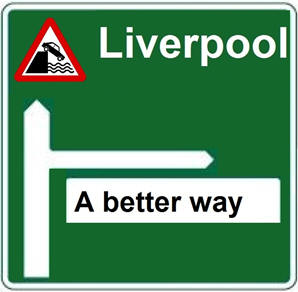Catholic Medical Quarterly Volume 65(1) February 2015
RESPONSE TO CONSULTATION ON REPLACEMENT OF THE LIVERPOOL CARE PATHWAY
The Medical Ethics Alliance
Introduction

The Medical Ethics Alliance is a coalition of six medical and nursing bodies and on 23rd June 2012 held a conference at the Royal Society of Medicine entitled, “Natural Death - is a pathway needed”(1) Subsequently we welcomed the review established under the chairmanship of Baroness Neuberger, and this paper is a response to the report “ More Care /Less Pathway”.
We wish to comment on four of the recommendations made.
Recommendation 3:
“The name Liverpool Care Pathway should be abandoned, and within the area of end of life care, the term “ pathway” should be avoided. An “end of life care plan”, should be sufficient for both professionals and lay people”
We should distinguish between advance statements which are advisory and advance refusals which can be binding if the circumstances that arise were those anticipated.
There are other questions about capacity. There is a danger that a person can be locked into a bad decision which prevents them receiving help when they need it. For example, if there is an obstruction of the bowel they may need relieving surgery.
We do not think that patients would welcome being put on a list of those considered to have less than a year to live. Such a plan, which was recently advanced by Baroness Jolly in the House of Lords, (2) is likely to be seen as a “death list”. If financial incentives are also attached to it these could be misunderstood. In any event , such a prognosis will often be impossible or proved wrong .The case of Al Magrahi illusrates this and for many families the emotional difficulties would be insurmountable. Though no doubt well intentioned, those who make such a proposal have probably not experienced tthe situation first hand.
Recommendation 5:
“The National Institute for Health Research fund research into the biology of dying”.
There was a lack of evidence base for the Liverpool Care Pathway and such as did exist was entirely based on death from malignancy. We do not consider that to be adequate for an understanding of deaths from non malignant conditions. Following the Constantini paper in The Lancet (3),and Currow and Abernathey commentary (4), the need for proper randomised cluster controlled trials was evident. We consider this is essential, and note that Constantini has already indicated protocols for further research and it may be profitable for it to be conducted internationally.
Recommendation 8:
“NHS England and Health Education England should collaborate to promote the use of prognostic tools, including awareness of their limitations…”
We suggest a repeat of earlier studies that compared the cause of death on death certificates with autopsy findings. The results could well be salutary and reveal treatable conditions for example, pulmonary embolus incorrectly diagnosed as pneumonia.
As a matter of good practice all doctors should ask themselves
- Just how secure is the diagnosis?
- Have all reversible conditions been addressed?
- Is the patient able to give informed consent to any action proposed?
- Has the patient been given the information they seek?
Has it been done gently and honestly as it is so important for patients generally to realise the reality of their situation and attend to their spiritual needs.
It may take a considerable time for some to reach this moment.
The “Five Stages of Grief”, have to be worked through.
Few patients wish to know their proximity to death and some cope by denying death until it can no longer be ignored. (5)
The MEA have suggested some questions which relatives may find helpful in discussions with doctors and nurses delivering end of life care. They are;
- Are you sure that death is imminent?
- Can the patient give consent to the treatment proposed?
- Will the treatment reduce consciousness?
- What effects will the treatment have, including the combined effects of the drugs proposed, and their effectiveness in reducing severely troublesome symptoms?
- Will you assure that the patient will not experience thirst and can fluids be given by mouth or in another way?
- Will death be hastened by what is proposed? (6)
Recommendation 10
“The General Medical Council should review whether adequate education and training is currently provided at undergraduate and postgraduate levels to ensure competence. It should ask … “How can it be ensured that practising doctors maintain and improve their knowledge and skills in these areas”.
It will be necessary to improve the skills of senior doctors and general practitioners in palliative care. There are relatively few palliative care physicians and these are not available out of hours or at weekends. There is therefore a danger that protocols could be brought back rather than making management decisions based on the patient’s individual needs. The watch word must be treatment should be based on need not prognosis.
Conclusion
We are firmly of the view that all persons should be treated with ethical, evidence based, compassionate and holistic care at the end of life.
Dr Anthony Cole, JP FRCP FRCPCH,
Chairman
Mr J Duddington,
Barrister, Secretary
References
- “Medical Ethics Alliance points towards good end of life care”, info medethics-alliance, 9/9/13, A Cole and 10 others
- Hansard reports on the House of Lords. Page 955 - 956, 12/12/12
- Constantini, “Liverpool Care Pathway for patients with cancer in hospital, a cluster randomised trial”, The Lancet 16th October, 2013
- Currow and Abernathy, “Lessons from the Liverpool Care Pathway”, The Lancet, 16th October, 2013
- Craig “CONSIDER; a mnenonic for care of the dying”, Catholic Medical Quarterly, Vol 63(4) November 2013, page 10
- Press release from Medical Ethics Alliance and Catholic Medical Quarterly, Vol 63(4) November 2013, page 9
